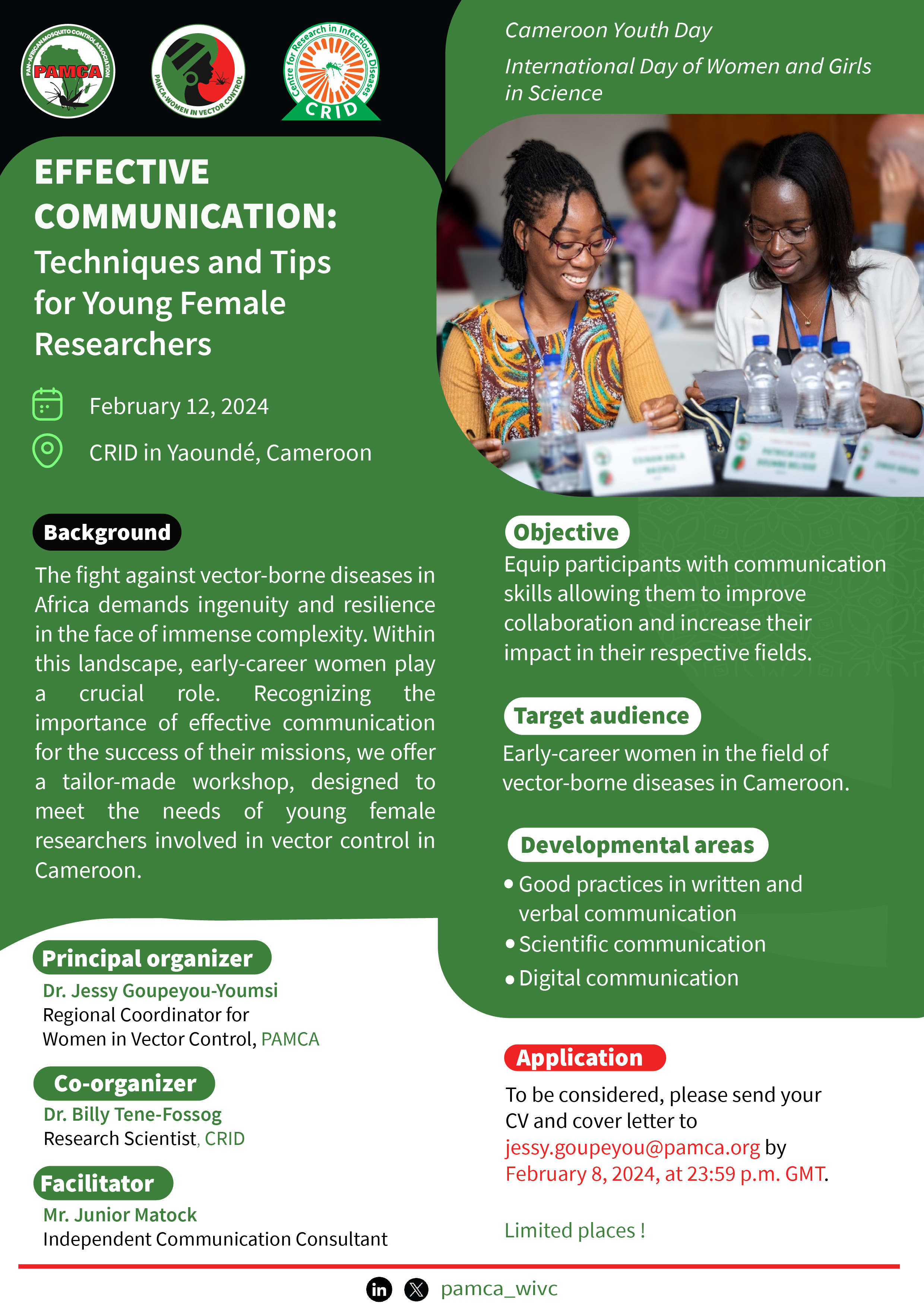Effective Communication: Techniques and Tips for Young Female Researchers
Background
The fight against vector-borne diseases (VBDs) in Africa demands ingenuity and resilience in the face of immense complexity. Within this landscape, early-career women are increasingly recognized as vital contributors. Yet, to maximize their impact, honing their communication skills is crucial. This understanding underpins the proposed tailor-made workshop, designed specifically for young female researchers actively engaged in VBDs in Cameroon, aligning with the spirit of both Cameroon's Youth Day and the International Day of Women and Girls in Science. By equipping them with essential communication tools in written, verbal, and digital domains, this workshop aims to empower them to excel in their roles. Ultimately, this program aspires to not only elevate individual careers but also significantly bolster the collective fight against VBDs in Cameroon, and in Africa in general.
Objective: Equip participants with concrete and adapted communication skills, allowing them to improve collaboration and increase their impact in their respective fields.
Target audience: Early-career women in the field of vector-borne diseases in Cameroon.
Axes of development
1. Good practices in written and verbal communication:
· Mastery of good editorial practices
· Verbal language and body language
· Adaptation of style and tone to the audience
2. Digital communication:
· Optimal use of digital communication tools
· Strategies for creating and distributing relevant content
· Mastery of professional social networks
3. Scientific communication:
· Popularization of complex scientific concepts
· Clear and concise presentation of data and results
Expected results:
· Significant improvement in concrete and adapted communication skills of participants in all areas covered
· Acquisition of increased ease and confidence in professional interactions
· Strengthening collaboration and team spirit
· Increased impact of actions carried out by participants
Pedagogy: Participatory approach focused on experiential learning, promoting the exchange and sharing of knowledge between participants.
Impact
- Personal and professional development of participants
- Improvement in the effectiveness of women in carrying out their missions
- Strengthening female leadership in the scientific field of vector-borne disease control
Acknowledgments: PAMCA, PAMCA-WiVC and CRID

